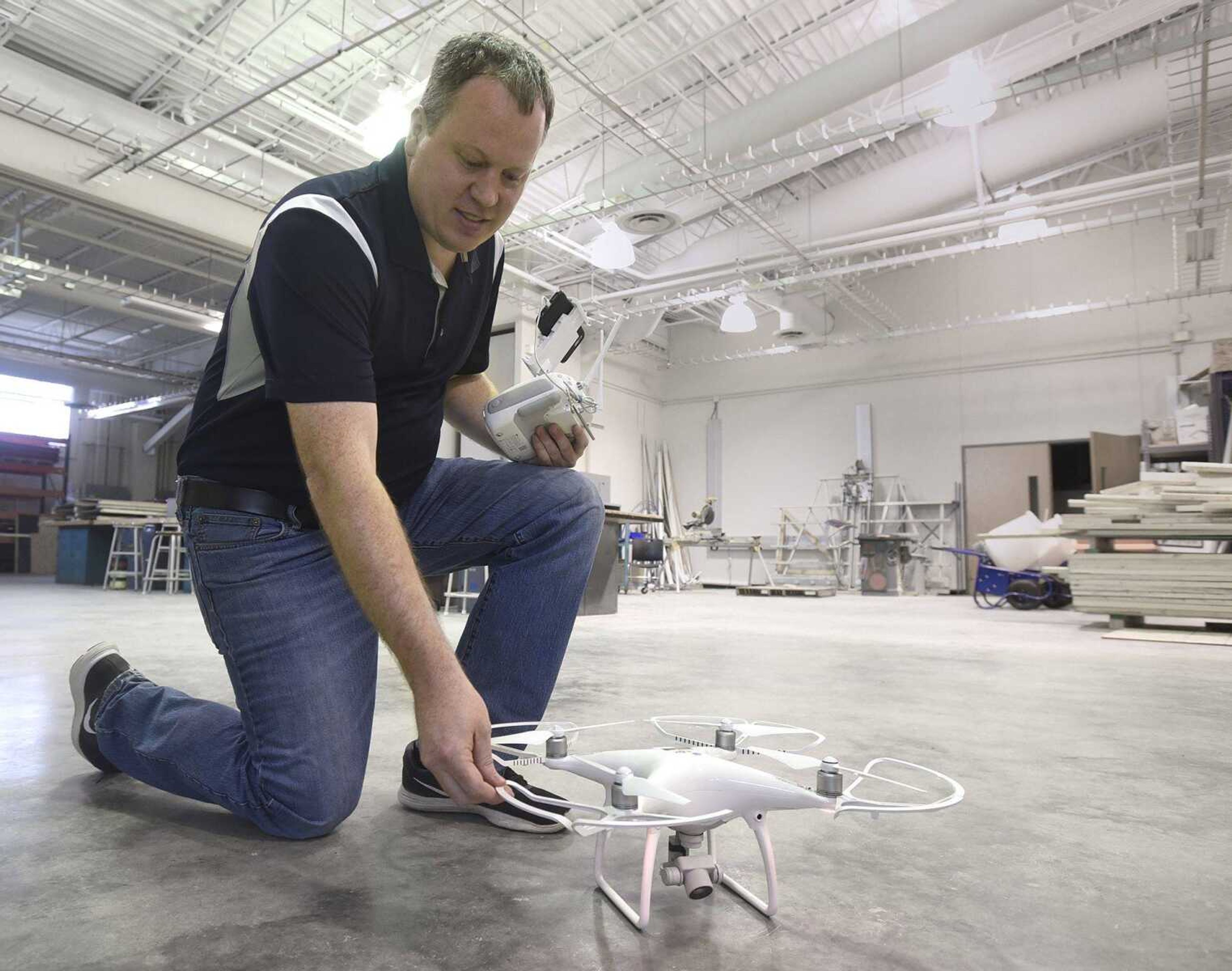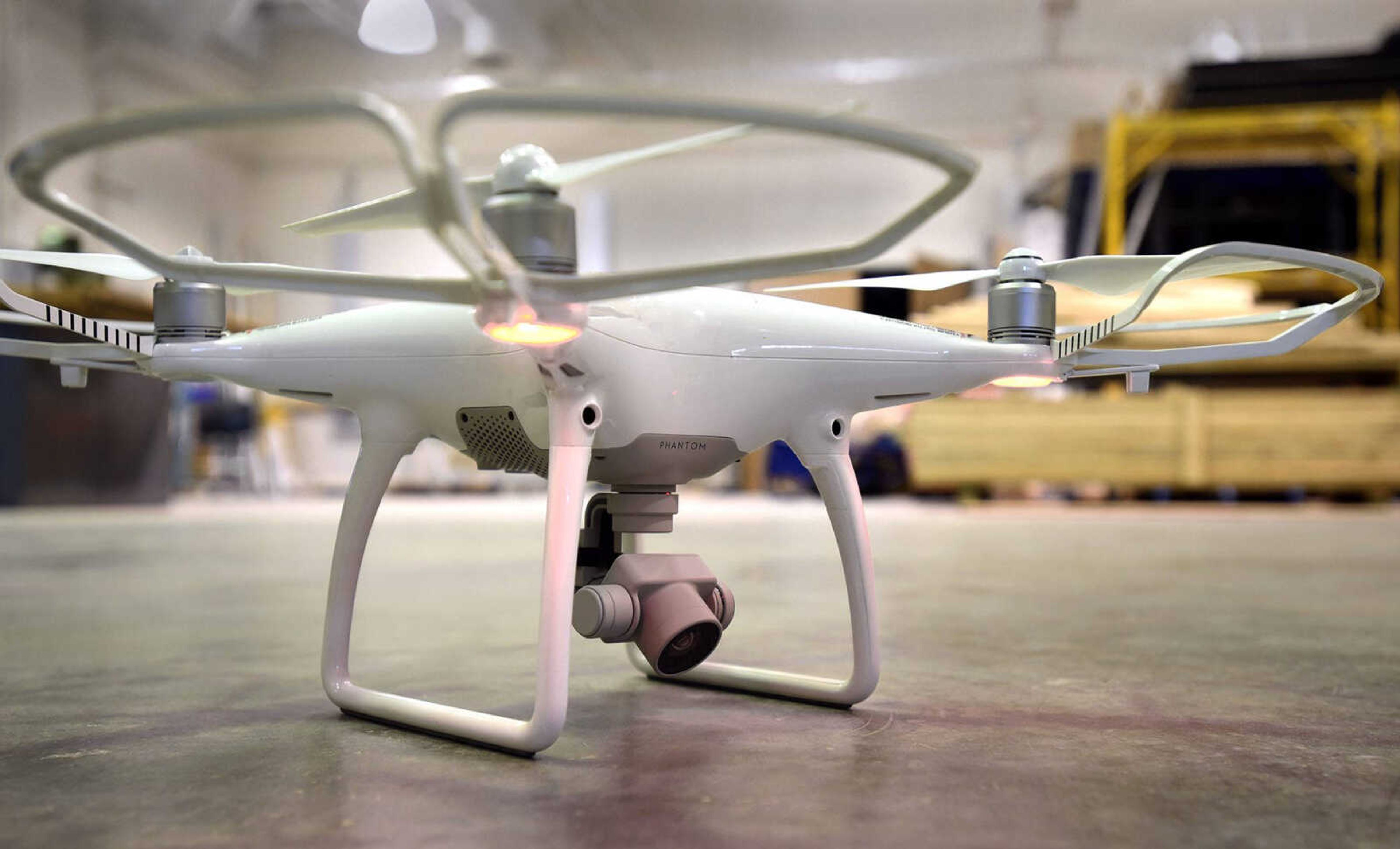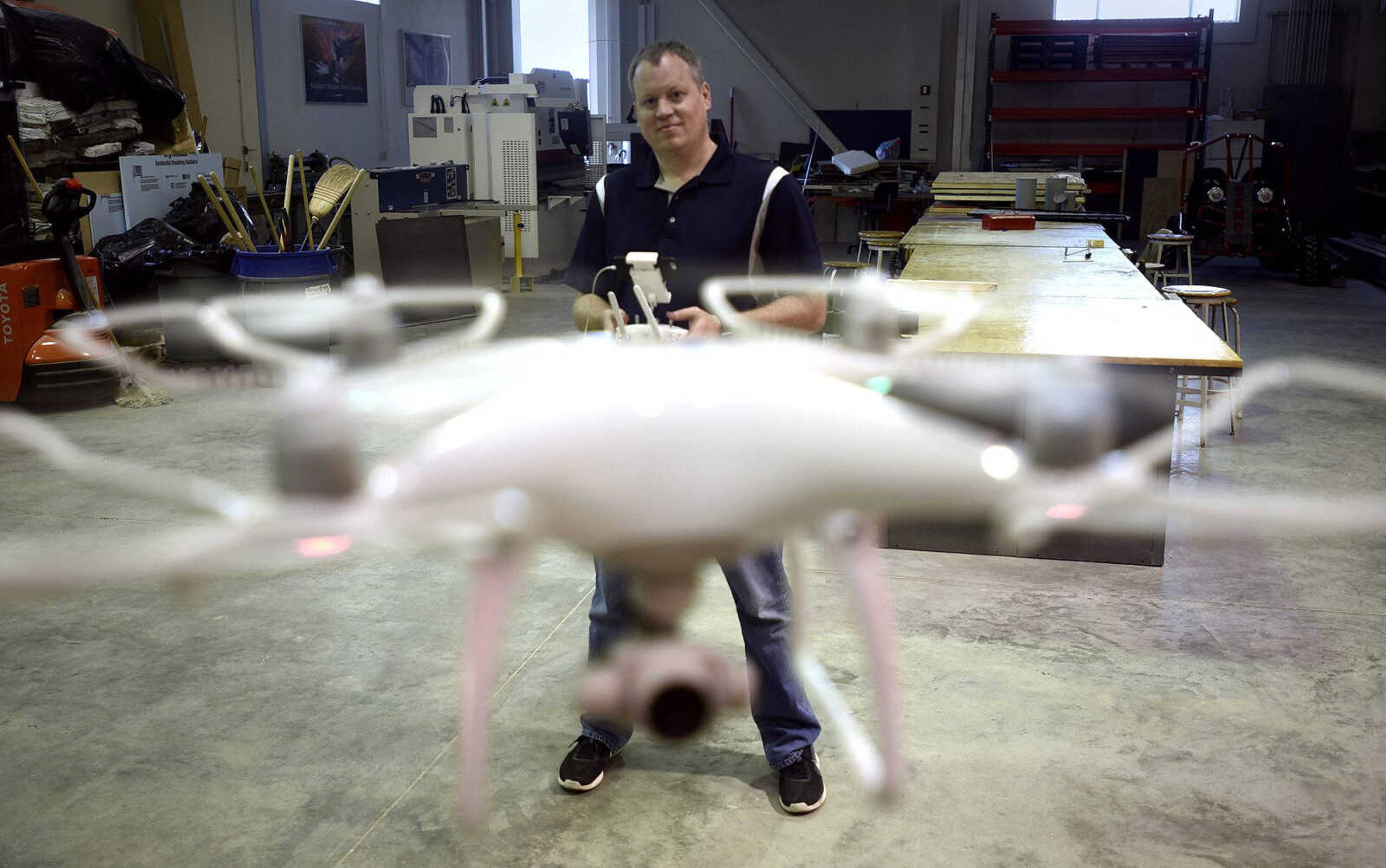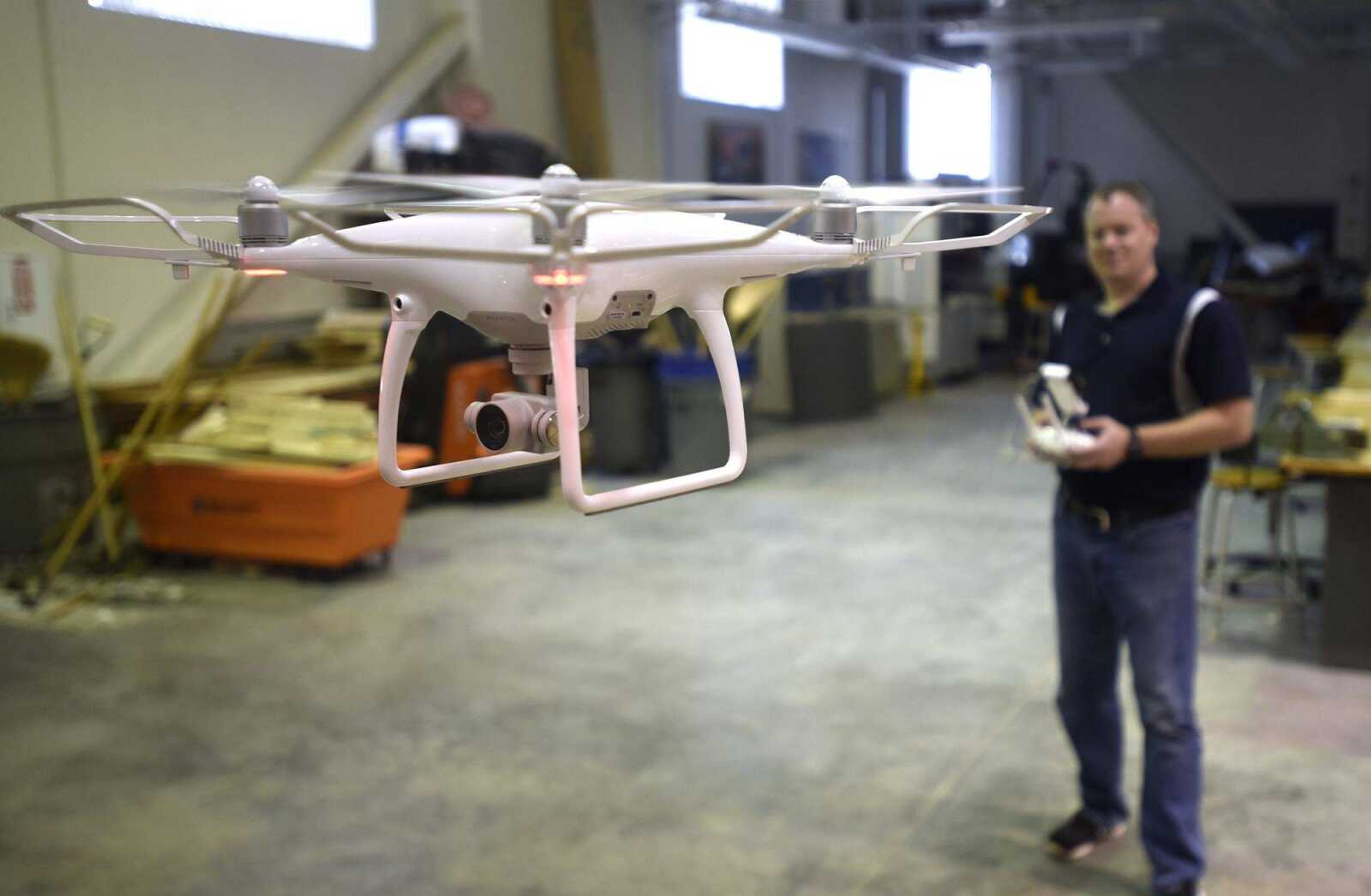Southeast expands curriculum to offer degrees in emerging tech fields
Southeast Missouri State University will expand its curriculum to offer degrees and instruction in several emerging technology fields this fall, including unmanned aircraft systems, otherwise known as drones. In addition to the drone program, Bachelor of Science degrees will be offered in industrial distribution and industrial and systems engineering, and geographic-information systems...
Southeast Missouri State University will expand its curriculum to offer degrees and instruction in several emerging technology fields this fall, including unmanned aircraft systems, otherwise known as drones.
In addition to the drone program, Bachelor of Science degrees will be offered in industrial distribution and industrial and systems engineering, and geographic-information systems.
Brad Deken, chairman of Southeast's Department of Polytechnic Studies, helped design the drone curriculum.
He said the university has been toying with ideas for new engineering programs for years.
"Everything has taken quite a while," he said.

Part of the delays is due to the newness of the technology itself.
"It's such an emerging techonology," he said. "Ten years ago, [drones] existed, but they didn't have the presence they have now."
It took a while for drones to be valued for their potential as a commercial tool rather than just a military technology, he said.
From agriculture to criminal justice to various types of photography and surveying, the applications still are being realized.
The goal of the new program, he said, is to take "interesting tools that are just a toy in some people's minds and getting good, practical use out of them."
But even Deken admits it can be "fairly ridiculous" how cool it is to work with the drones.
John Kraemer, who teaches biology and environmental science at Southeast, helped develop the geographic-information science program, which he said is split into two general emphases.

Students will learn application techniques as well as coding to use or edit software better to help in those applications.
"It's a little of both worlds," he said. "We have definitely made it a multidisciplinary degree that focuses on applications and then some computer language. ... [GIS] has applications in business in environmental conditions for biology, for crime statistics; any of those areas, they should be able to find careers in any of that."
He said it took about a year to develop the curriculum, but when it is implemented during the fall semester, Southeast will be the only school in the state offering a bachelor's degree in the field.
"We're super happy about it," he said. "A lot of other programs will run them as master's degree-level programs or as certificate programs, but we'll have a Bachelor of Science degree."
He said the school already has seen incoming freshmen communicate their intent to major in GIS.
"I think the national market for these folks is going to be huge, and they should make a pretty good salary after they get out of school," Kraemer said. "It's a great visual tool to help you take a lot of information and be able to use it for planning purposes and programming operations."
The industrial-distribution degree, Deken said, was developed in response to companies' requests.
"Industry asked us to create the program," he said. "It's tough to find a good salesperson with a good technical mind to really understand what they're selling. ... We're trying to train students for the jobs that are going to be out there and look to the future as well."
He said at this point, 13 students are registered for the drone track alone, which he sees as a good start.

Vijay Anand, director of Southeast's cybersecurity program, said there were about 14 students in that program initially.
But in the five years since, it's grown tenfold, and last month, Southeast's competitive cybersecurity team took its fifth consecutive state championship.
Deken hopes to follow a similar trajectory, and Anand said Southeast is a good place to do so, citing a "culture of excellence" that permeates the study of emerging technologies at the university.
"I would say the university ... has been very supportive of this program," Anand said. "And we have done pretty well."
tgraef@semissourian.com
(573) 388-3627
Connect with the Southeast Missourian Newsroom:
For corrections to this story or other insights for the editor, click here. To submit a letter to the editor, click here. To learn about the Southeast Missourian’s AI Policy, click here.









